CORDILLERA DAY IN TORONTO: A Celebration of Indigenous Struggle
CORDILLERA DAY IN TORONTO: A Celebration of Indigenous Struggle
The struggles of the indigenous people of northern Philippines for control of their land and resources were commemorated at this year’s Cordillera Day in Toronto.
On the evening of April 21, a crowd of approximately 100 people gathered to hear and participate in the traditional Cordilleran dance, music, and singing at the event, which was interspersed with solidarity messages from Filipinos and other indigenous peoples around the world. The event was organized by Binnadang, which is part of the organization Migrante Canada, and held at the Holy Rosary Parish Hall on St. Clair West.
The tribes of the Cordilleras have struggled against industrial projects, such as mining, that often see foreign companies destroying their environments, fragmenting their communities, and militarizing their lands. The Cordillera People’s Alliance have said that at least seven Canadian mining companies operate there through local subsidiaries, including Barrick Gold, Metallum Resources, Solfotara Mining, Olympus Pacific Minerals, and Magellan Metals.
One of the emcees of the evening Bridge Dang-ay said it’s important to celebrate Cordillera Day because of the history behind the event. When a Kalinga leader, Macli-ing Dulag, opposed the building of the Chico River Dam in 1980 during the Marcos administration, the Philippine military gunned him down. After years of commemorating Dulag’s struggle, in 1985 the Cordillera People’s Alliance created Cordillera Day.
“Cordillera Day is a tribute to the people who brave the threats, torture and death to give the Cordillerans a legacy,” Dang-ay said in an interview. The event also informs people that problems like the intrusion of aggressive projects and militarization persist. “We need to unite and give a voice to fight this kind of social injustice,” she said.
Dang-ay is also the solidarity officer and facilitated messages delivered to the crowd from Susana Caxaj from Guatemala, Victoria Mejicano from the Dominican Republic, and spoken word artist Spin from Colombia.
Caxaj told the audience about the water contamination, strange illnesses, community divisions and disillusionment of the people who live in areas with mining and other mega-projects. “So many people from Latin America and Asia end up in Canada because of mining companies displacing our communities, so it’s part of a global struggle,” she told the audience.
The keynote speaker, Cynthia Abdon, spoke about the importance of solidarity events like this in giving Cordillerans the strength to continue their fight. Abdon is the director of the Mission for Migrant Workers in Hong Kong.
Several times in the evening, the joyful audience joined the dancers adorned with brightly patterned wrap-around skirts and beaded necklaces and drummers banging gongs in their circular dances.
Kalinga dancers Janilyn Sal-aol and Marikit Dangoy knew each other from their Philippine hometown, Tabuk City, before immigrating to Canada as caregivers. They both grew up with traditional dancing and perform “to show the rich culture back home.” They said every season in Kalinga province, there is a festivity depicted through dances, such as during harvest time.
19-year-old Ester Owatan performed an interpretive dance with her brother, J.R. Owatan because she “wanted to show everyone that I’m proud to be a Cordilleran.”
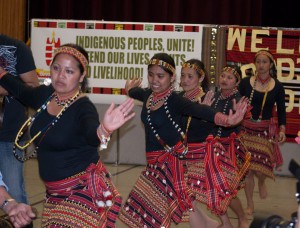
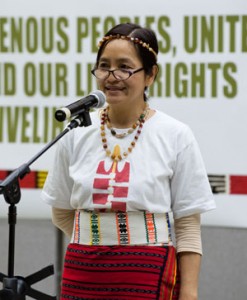
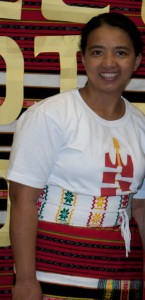

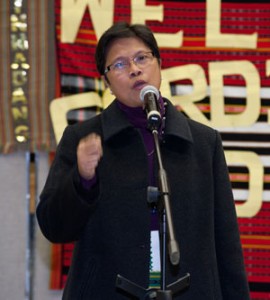
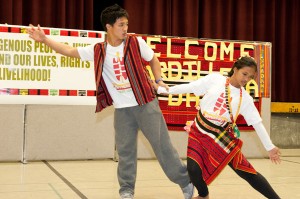
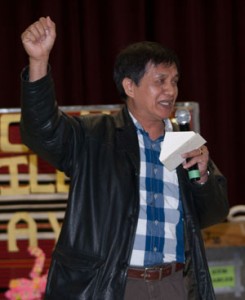
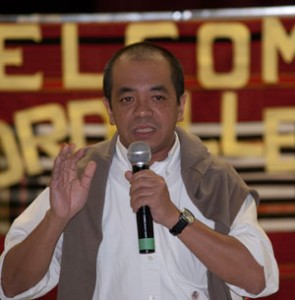
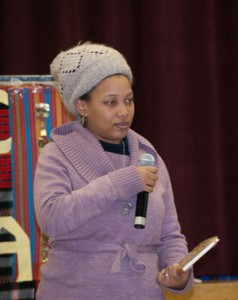

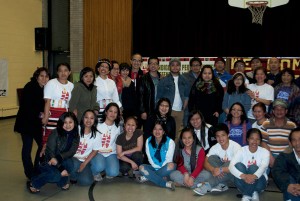
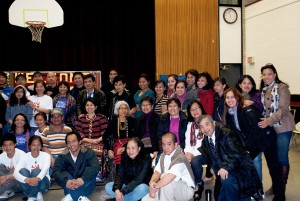
Comments (0)